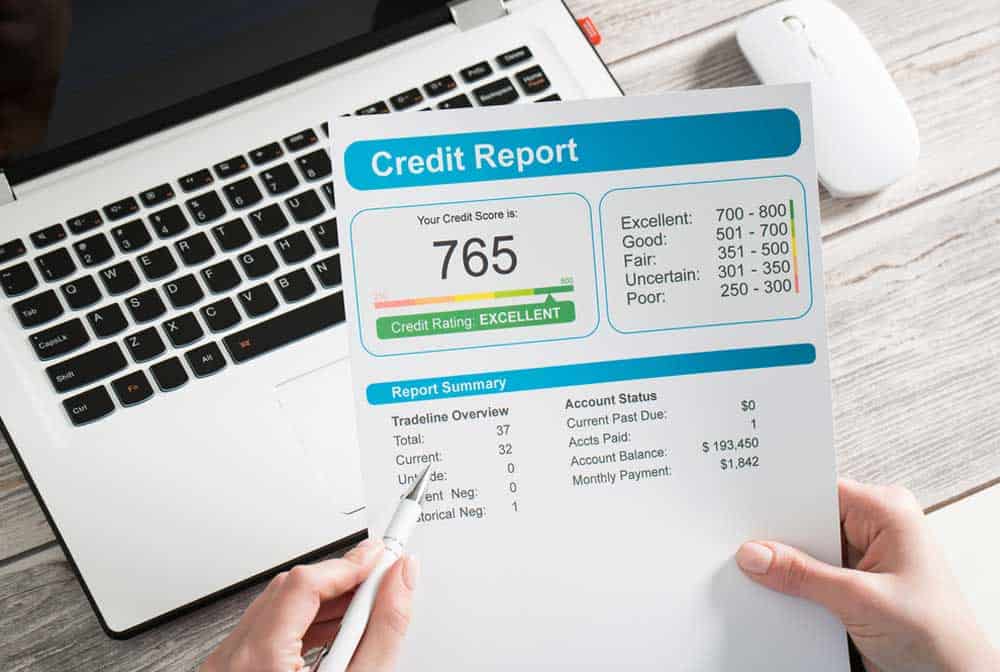Your Credit Profile: Are You Smart Enough?

Article Summary: As a small business owner you don't need to be a financial expert to get a business loan, but you do need to understand your credit profile and how it impacts how lenders evaluate your creditworthiness.
Every business owner in the United States need to be aware of both his or her personal credit score as well as their business credit profile. Although the personal score is a reflection of how you meet your personal financial obligations, it will likely be part of the equation every time you apply for a business loan. And, in addition to your personal score, it's important to build a strong business credit profile. Basically, lenders are looking for the answer to these three questions, although they might not ask them in this way:
- Can you repay a loan?
- Will you repay a loan?
- Will you make each and every payment?
Building an maintaining a strong credit profile isn't a guarantee you'll qualify for a loan at each and every lender, but it will give you more options. Keep reading to learn more.
Today is Get Smart About Your Credit Day. As a small business owner, you don’t need to be a credit or finance expert, but in today’s world, it’s critically important that you have a strong foundation of credit knowledge and are vigilant in your efforts to build and maintain a strong profile.
Every small business owner in the United States has two profiles, their personal credit profile and their business credit profile—and business owners need to have a good understanding of how they work together.
Personal Credit
Your personal credit is a reflection of how you meet your personal credit obligations. Although it’s not the best indication of how your business meets its business credit obligations, business creditors consider it an important part of an overall evaluation of the business and the business owner(s) creditworthiness.
Many of the roughly 30 million small businesses in the United States are very small businesses that are a direct reflection of their owners/founders. So it makes sense that the way those owners approach their personal credit would be a consideration when they apply for a small business loan. In a nutshell, lenders really want the answer to three basic questions:
- Can you repay a loan? Does the business have sufficient revenue and cash flow to service debt? This is why most lenders ask questions about a business’ income and cash flow. They are looking for business borrowers with the ability to make periodic payments.
- Will you repay a loan? This is a slightly different question from the one asked above and is why your credit profile (including your personal credit) is so important. It’s also the reason most lenders consider your personal profile when evaluating your creditworthiness. It gives them insight into whether or not you will make regular and timely loan payments to them based upon your credit history—what you’ve done in the past.
- Will your business make each and every loan payment? This is one reason why a lender wants to ensure you have the resources to make those loan payments regardless of what happens within your business. Unlike an investor, a banker or other lender isn’t investing in your company. They make capital available to your business in exchange for a regular periodic payment. If you can’t make those payments, both your business and the lender lose.
In light of recent data breaches within the personal credit reporting industry, it’s probably more important than ever to pay close attention to your personal credit profile. Regularly monitoring your personal credit, in my opinion, is worth the modest fees the major personal credit bureaus (Experian, Equifax, and Transunion) charge. I receive a monthly report and an update anytime there’s a change or an enquiry on my credit profile. What’s more, over the years, I’ve caught a thing or two and have been able to address an issue early, before it got out of hand.
In addition to the major bureaus, there are other services that offer credit monitoring; and in the United States you are entitled to a free credit report every year (although I’m personally a fan of more frequent monitoring). In Canada, for example, if you will accept a paper copy sent via the mail, you can access your personal credit report as often as you’d like.
Business Credit
Your business credit profile is a reflection of your business credit history. Unlike your personal credit, it’s not expressed in a fairly universal score, but rather is typically expressed in a series of reports that address how timely a business repays vendors who offer payment terms, their payment history with any current small business loans, industry information (including the overall creditworthiness of other businesses within that industry), and comparisons between the business and others within the same revenue class, size, number of employees, and the region where they do business.
In the same way I consider it valuable to regularly monitor and review your personal credit profile, I think frequently monitoring (monthly is not too frequently) your business credit is an important step to building a profile that might not guarantee a small business loan, but will certainly increase the loan options available to a small business. It’s human nature to improve or make a difference in the things you pay the most attention to. The same is true for your business credit profile.
Additionally, for any business owner, it’s important to separate personal credit use from business credit use and avoid using personal credit for business purposes as soon as possible. I say this because using your personal credit for business purposes doesn’t help build a strong business credit profile and some business credit use cases can actually harm your personal credit score.
If you’d like to learn more about business credit, click HERE.
We all hope you’re enjoying Get Smart About Your Credit Day. A great understanding of how credit works likely isn’t the reason you became a small business owner, but it will certainly help you build a successful business.
DISCLAIMER: This content is for informational purposes only. OnDeck and its affiliates do not provide financial, legal, tax or accounting advice.
Find the right funding for your business.
Term loans up to $250K. Lines of credit up to $100K.
No obligations and no hard credit pulls.




